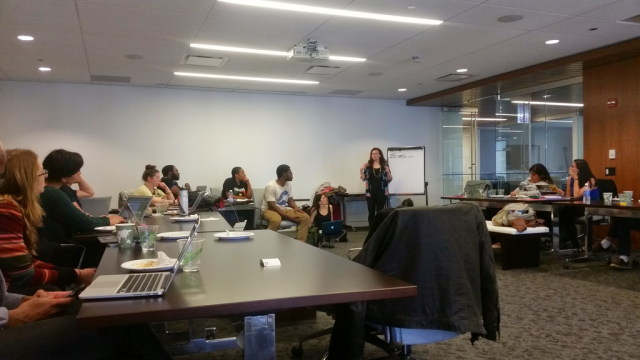Through the Experimental Modes project, I’ve been researching and analyzing methods for community-controlled civic tech. These “modes” of civic engagement in civic tech were distilled through a process of evaluation, research, and interviews.
Now, we’re inviting you to tell your own story as part of our Civic Tech Case Study Sprint. This documentation project (inspired by bookprints and Beautiful Trouble) was set in motion at our practitioner convening last Saturday.
In the afternoon, I led an exercise on storytelling and documentation. After presenting on the 5 Modes of Civic Engagement in Civic Tech, we discussed additional strategies and tactics used in our work. We also discussed this sprint and what we, as practitioners, would like to see in documentation of our work, and adjusted the form based on based on this feedback.
The case studies produced as part of this exercise will be published on the Smart Chicago website and will be spread as far and wide as we can. To contribute to the sprint, all you have to do is fill out this form. We are open to examples from within the United States as well as abroad and don’t care whether the examples are 10 years or 10 minutes old.
After completing your DIY Case Study, you will get a copy of your submission immediately by email. Everything Smart Chicago publishes is Creative Commons 4.0.
Once we have all of the case studies in from everyone who attended our convening, I will compile of the responses into a document that reviews quantitative info (number of times a particular mode was used, prevalence of specific tactics, etc.) along with an analysis of trends & insights from your narratives. (The Smart Chicago CUTGroup Final Reports are good examples of this type of analysis.)
Submit your case study before Sunday, April 19, 2015 to be included in this report. All of these outputs, including the raw form data (example) will be housed shared on the Experimental Modes project page, where we’ll also post and link to the case studies as individual PDFs.
Questions? Comments? . Otherwise, get cracking!







